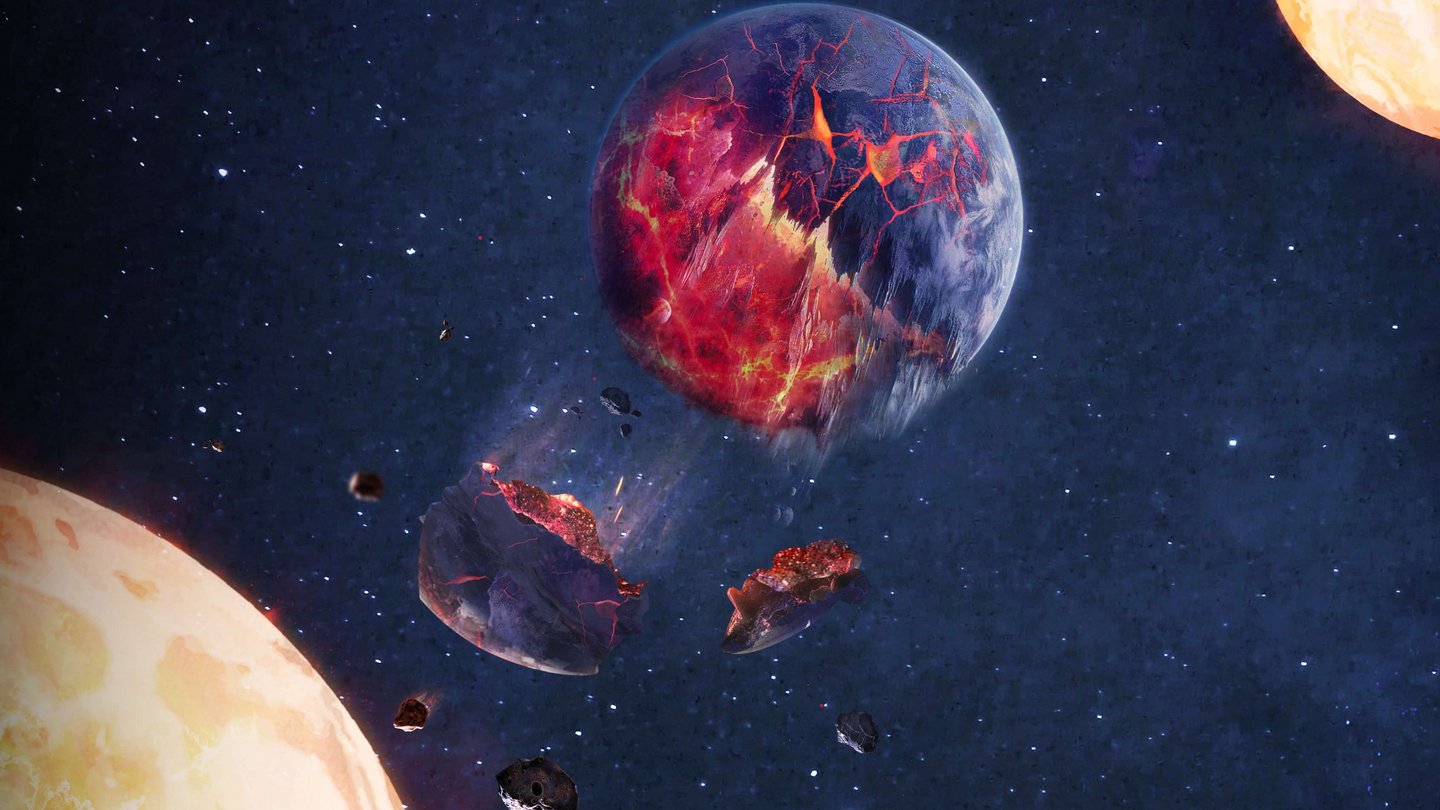The definition of a planet means that the celestial body orbits a star. These orbits are usually stable, they always stay the same. But there are events that can break this stability and knock the planet out of its orbit so that it is eventually swallowed by its star. And it's not that rare: As a research group reported in the journal Nature, eight percent of all stars in binary star systems may have incorporated a planet at some point.
Binary stars form together from the same galactic dust cloud. This also means that they have the same chemical composition. But once a star engulfs a planet, its composition changes. This is why binary stars are useful for detecting engulfing planets.
Van Liu and his team examined 91 binary star systems. Using three different telescopes — the Very Large Telescope, the Magellan Telescope, and the Keck Observatory — they recorded the spectra of individual stars and compared the chemical composition of stars that belonged together. The spectra of about eight percent of the binary stars differed, which are signs that indicate an engulfed planet.
Different scenarios for different chemistry
In the first 100 million years after formation, the planetary system is much more turbulent. During this time, according to Liu, it may have happened more often than not for a star to engulf a planet — but after billions of years, these events can no longer be measured in terms of differences in chemical composition. Therefore, the researchers assume that the stars identified in this study swallowed a star much later. The number of unreported cases would be much higher in this case.
In hindsight, it is difficult to know exactly what caused the planet to fall out of orbit and collide with the star. So, researchers can only speculate about the cause: flying too close to one planet not orbiting a star, or another star, may be the cause of the disturbance. It is also possible that the inner planet will slowly lose its atmosphere and thus become unstable.
Some feedback may be a false alarm. Other events can also cause differences in the chemical composition of binary stars: for example, the star may have swallowed a protoplanetary disk – or vice versa and prevent the gas giants around the star from absorbing material from the star's outer regions. Planetary system. But such events likely caused much smaller differences in chemical composition than the researchers observed. Further investigations in the future could compare the measurement results from this study with different models for the formation of protoplanetary disks and planets and thus eliminate this uncertainty.

“Social media evangelist. Baconaholic. Devoted reader. Twitter scholar. Avid coffee trailblazer.”







More Stories
These brands are most vulnerable to phishing scams
Apple Maps Now Has a Web Version and Wants to Challenge Google Maps
Best AirDrop Alternatives for Android